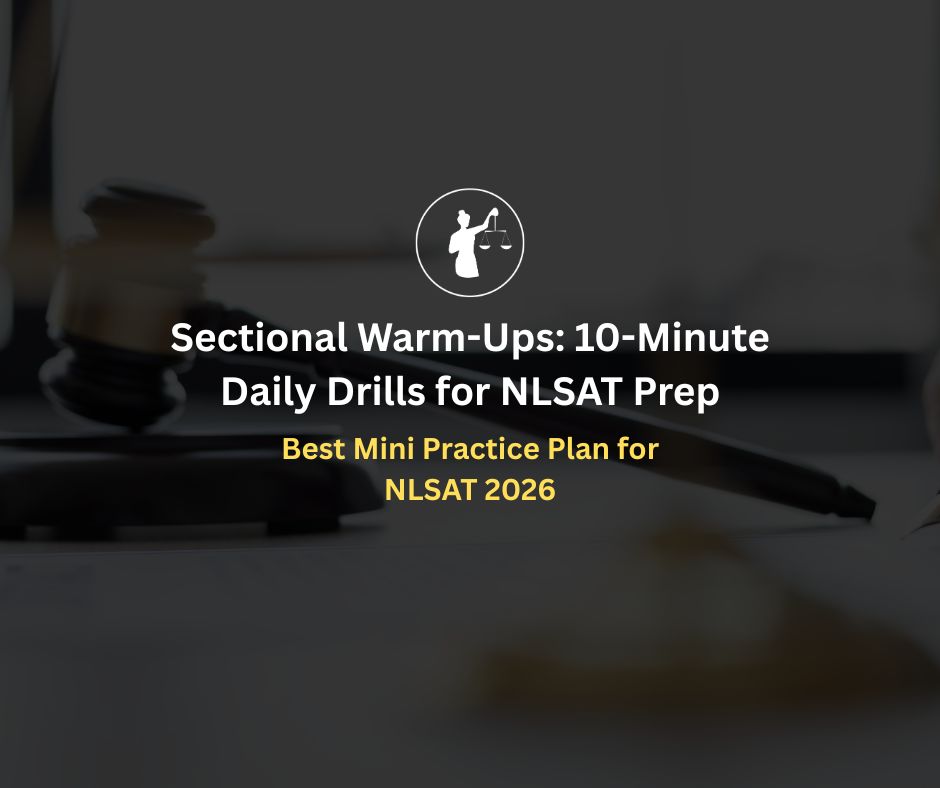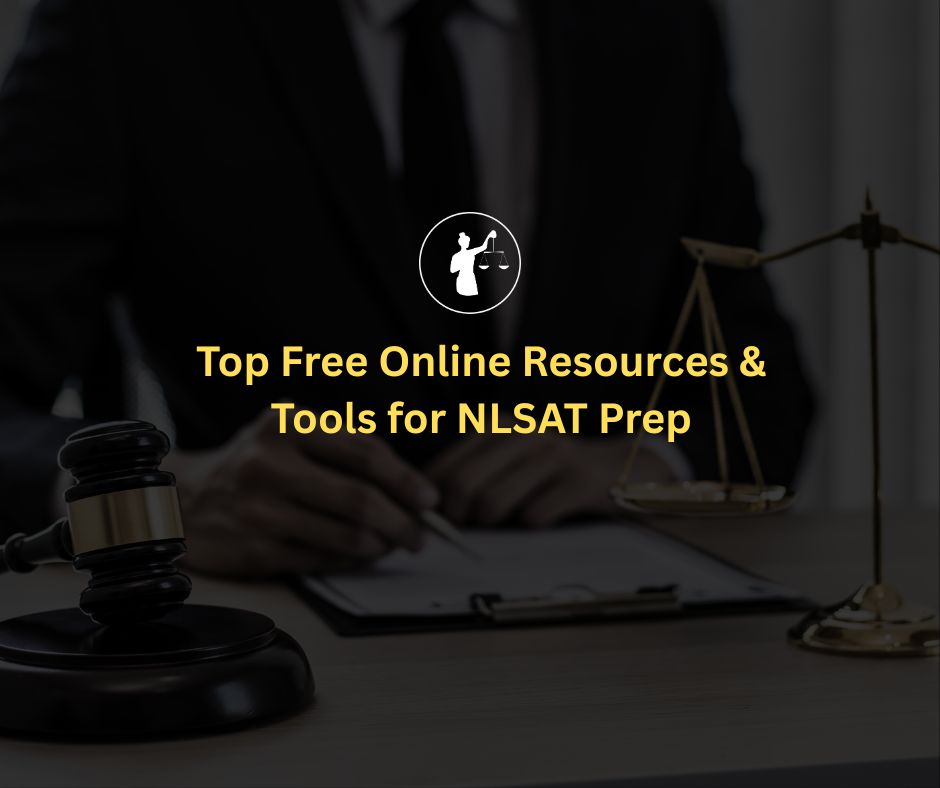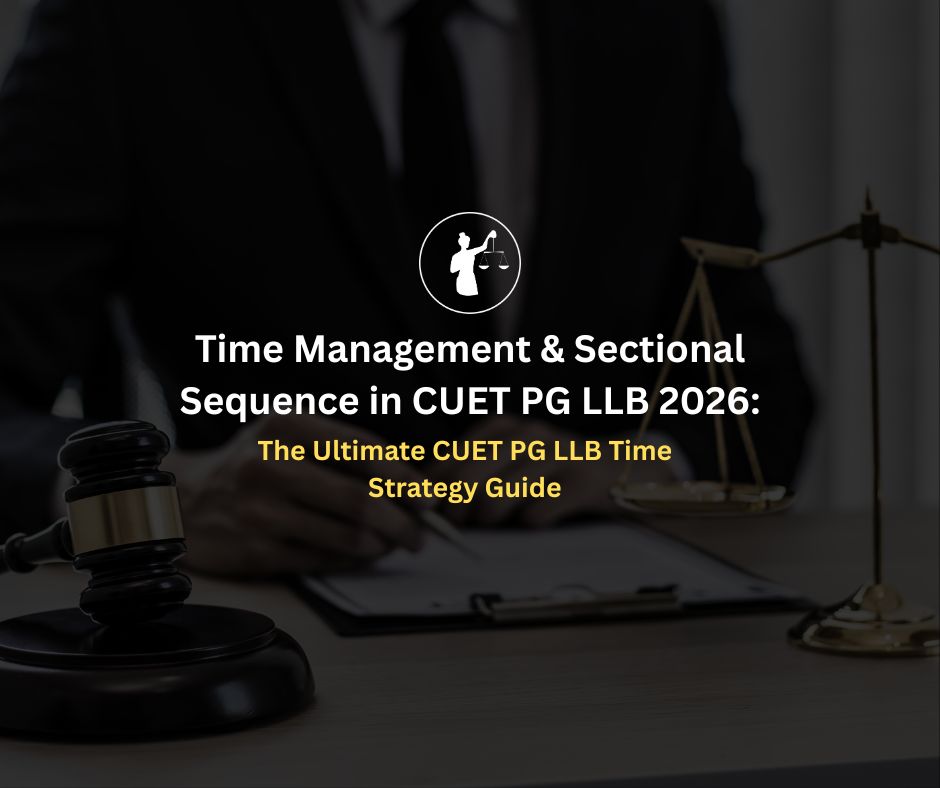Preparing for the CUET DU LLB 2025 exam is not just about covering the syllabus it's about understanding the exam’s nuances, creating a personalized strategy, and executing it effectively. Whether you’re beginning your preparation well in advance or starting late, a systematic approach can make all the difference. This step-by-step guide will help you stay organized, cover all essential topics, and ultimately boost your chances of success.
CUET-PG LLB 2025: Coaching cum Mentorship + Test Series
Step 1: Understand the Exam Pattern and Syllabus
Understanding the exam pattern and syllabus is the first and most crucial step toward efficient preparation. It helps you identify the key areas to focus on, plan your study schedule, and avoid wasting time on irrelevant topics. Here's a breakdown:
Exam Pattern
- Total Questions: The exam consists of 100 multiple-choice questions (MCQs), each carrying equal weight.
- Duration: The time limit is 2 hours, making it important to practice time management during preparation.
- Subjects: The exam is divided into four key sections:
- English Comprehension
- General Knowledge & Current Affairs
- Legal Awareness & Aptitude
- Analytical Abilities
This structure ensures that the exam evaluates a candidate's aptitude for law as well as their general awareness, reasoning, and language skills.
Syllabus Breakdown
1. English Comprehension
- Focuses on reading comprehension, grammar, vocabulary, and sentence correction.
- Tests your ability to interpret information, understand language nuances, and identify grammatical errors.
- Common question types include fill-in-the-blanks, synonym-antonym pairs, and passage-based questions.
2. General Knowledge & Current Affairs
- Static GK: Covers fundamental topics like history, geography, polity, economics, and science.
- Current Affairs: Includes recent events, government policies, international developments, and sports updates from the past 12 months.
- Staying updated with daily news is critical for this section.
3. Legal Awareness & Aptitude
- Tests your understanding of the Indian Constitution, legal terms, and basic legal principles.
- Questions may include landmark judgments, legal maxims, and rights under the Constitution.
- This section gauges your interest in and aptitude for legal studies.
4. Analytical Abilities
- Covers logical reasoning, puzzles, series, and critical thinking.
- Focuses on your ability to analyze information, identify patterns, and draw logical conclusions.
- Often includes syllogisms, number series, and arrangement-based problems.
Step 2: Gather the Right Study Materials
Choosing the right study materials is critical to building a solid foundation and ensuring efficient preparation. Here’s a detailed explanation of the resources you should use:
Books and Resources
1. English Comprehension
- Word Power Made Easy by Norman Lewis: This book is excellent for building vocabulary. Its structured approach ensures that you learn new words with their usage and context.
- High School English Grammar and Composition by Wren & Martin: A classic grammar book that helps you master sentence construction, error correction, and grammatical rules.
- Previous Year Papers: Solving past papers provides insight into the type of questions asked and helps you practice frequently tested areas like reading comprehension.
2. General Knowledge
- Manorama Yearbook: A comprehensive resource for static GK, covering topics like history, geography, science, and economy.
- Lucent’s General Knowledge: A compact and precise book, ideal for quick revisions and covering static GK concepts.
- Newspapers:
- The Hindu: Renowned for its in-depth coverage of national and international news, editorial pieces, and legal updates.
- Indian Express: Known for its concise reporting, especially useful for current affairs and political developments.
3. Legal Awareness
- Legal Aptitude for CLAT and Other Law Entrance Examinations by A. P. Bhardwaj: This book provides comprehensive coverage of legal principles, important judgments, and legal reasoning questions.
- Online Quizzes: Platforms offering legal GK quizzes help you regularly test your knowledge and stay updated with legal developments.
4. Analytical Abilities
- A Modern Approach to Logical Reasoning by R. S. Aggarwal: A widely recommended book that covers all types of reasoning questions, from puzzles to series and logical deductions.
- Mock Tests and Sectional Practice: Regular practice through mock tests ensures speed and accuracy. Sectional tests help you strengthen specific areas of reasoning.
By using these resources, you can build a strong foundation in each section and gain confidence for the CUET DU LLB 2025 exam.
Step 3: Create a Realistic Study Plan
A structured study plan ensures consistent progress and helps you cover all areas effectively. Divide your preparation into phases and allocate time based on your strengths and weaknesses. Here's how to go about it:
Phases of Preparation
Foundation Phase
- Focus on building a strong understanding of concepts in all subjects.
- Use standard books and resources to study topics in-depth.
- Avoid rushing through this phase; it's critical for long-term retention.
Practice Phase
- Start solving topic-wise questions to gauge your understanding.
- Identify weak areas and revisit those topics for additional clarity.
- This phase bridges the gap between theoretical knowledge and practical application.
Mock Test Phase
- Simulate the actual exam by taking full-length timed mock tests.
- Work on improving speed, accuracy, and time management.
- Develop strategies for attempting questions (e.g., solving easy ones first).
Sample Weekly Schedule
This is a sample plan to help you maintain consistency while covering all subjects:
- Monday: Focus on English grammar rules and practice reading comprehension passages.
- Tuesday: Study static GK (e.g., history, geography) and learn important legal terms.
- Wednesday: Dedicate time to logical reasoning, solving puzzles, and practicing series-based questions.
- Thursday: Update yourself with the week’s current affairs, including legal and political developments.
- Friday: Revise key legal aptitude concepts, such as fundamental rights and landmark judgments.
- Saturday: Attempt a full-length mock test under exam-like conditions.
- Sunday: Analyze the mock test to identify strengths and weaknesses. Revise the weak areas and fine-tune your strategy.
This schedule ensures a balanced approach, focusing on learning, practice, and self-assessment.
Step 4: Stay Updated with Current Affairs
Current affairs play a significant role in the General Knowledge section of the CUET DU LLB exam. Staying consistent in this area requires discipline and the right resources.
How to Stay Consistent
Daily Reading
- Dedicate 20–30 minutes each day to reading newspapers like The Hindu or Indian Express.
- Alternatively, use news apps like Inshorts for quick updates if you're short on time.
Follow Legal and Political Updates
- Use platforms like LiveLaw and Bar & Bench for the latest developments in the legal world.
- Pay special attention to changes in laws, important judgments, and constitutional debates.
Maintain a Notebook
- Organize your current affairs notes topic-wise, such as "Legal Updates," "International News," and "Economic Policies."
- Regularly revise these notes to retain important information for the exam.
Consistency in tracking current affairs not only helps with GK but also enhances your legal awareness for the exam.
Step 5: Regularly Practice Mock Tests and Previous Year Papers
Mock tests and previous year papers are indispensable for exam preparation as they provide a clear idea of the exam's format and difficulty level.
Why Mock Tests Are Crucial
- Simulate the Exam Environment
- Mock tests replicate the time pressure and question patterns of the actual exam, helping you stay calm during the real test.
- Improve Time Management
- They teach you how to allocate time to different sections efficiently.
- Identify Strengths and Weaknesses
- Analyzing test performance helps you pinpoint areas that need improvement.
How to Practice Effectively
- Start with Sectional Mocks
- Begin with smaller, subject-specific tests to strengthen individual areas like English comprehension or legal aptitude.
- Progress to Full-Length Mocks
- As the exam date approaches, shift focus to full-length tests to fine-tune your time management and overall strategy.
- Analyze Every Mock Test
- Evaluate your performance based on accuracy, speed, and areas where you lost marks.
- Focus on revising weak areas and avoid repeating mistakes in future mocks.
Step 6: Develop Time Management Skills
Time management is crucial for success in the CUET DU LLB 2025 exam, as you have just 2 hours to attempt 100 questions. Proper planning and execution on the exam day can make a significant difference in your score.
Tips for Effective Time Management on Exam Day
Allocate Specific Time to Each Section
- Divide the total time based on the number of questions and the difficulty level of each section.
- For example, you could allocate 25–30 minutes for English, 20 minutes for General Knowledge, and the rest for Legal Awareness and Analytical Abilities.
Prioritize Easier Sections First
- Start with the sections you are most comfortable with. Solving easy questions first helps build confidence and saves time for challenging ones later.
- For instance, if you're strong in English comprehension, tackle that section first.
Avoid Spending Too Much Time on One Question
- Don’t get stuck on difficult questions. Mark them for review (if the system allows) and move on.
- Keep a mental check: If you’re spending more than 1–2 minutes on a single question, it’s time to skip and revisit it later.
By practicing time management during mock tests, you’ll develop a strategy that works best for you, ensuring you complete the paper efficiently.
Step 7: Seek Expert Guidance (if Needed)
While self-study works well for many aspirants, some may need additional support to clarify concepts, stay consistent, or navigate tricky sections. Here’s how expert guidance can help:
When to Consider Expert Guidance
Difficulty in Self-Study
- If you’re struggling to understand complex topics (e.g., legal reasoning or analytical abilities), a mentor or coach can break down concepts for you.
Lack of Structure
- Coaching programs provide structured study plans, mock tests, and regular performance analysis, which can be beneficial if you're unable to create a study schedule on your own.
Options for Guidance
Online Coaching
- Offers flexibility to study at your own pace, with access to recorded lectures, live sessions, and doubt-solving forums.
- Many reputed platforms offer dedicated CUET DU LLB coaching programs, which include mock tests and curated study materials.
Study Groups and Forums
- Joining peer groups or online forums can foster collaborative learning.
- Discussing tricky questions, sharing resources, and exchanging preparation strategies with fellow aspirants can boost motivation and help you stay on track.
Step 8: Revise Strategically
Revision is a vital part of your preparation, as it reinforces what you’ve learned and ensures you retain key concepts until exam day. A well-planned revision strategy can help you recall information faster and address weak areas.
Daily Revision
- Why It’s Important: Revisiting topics on the same day helps solidify your understanding and improves retention.
- How to Do It: Dedicate 15–30 minutes every evening to review what you studied during the day. Focus on important concepts, tricky questions, or areas you found challenging. Use sticky notes or flashcards for quick revision.
Weekly Revision
- Why It’s Important: Regularly revisiting previously studied topics prevents forgetting and builds a strong foundation.
- How to Do It: Reserve one day per week—preferably Sunday—for revision. Go over key topics from each subject, particularly those that are high-scoring or prone to error.
- For example:
- Revise English comprehension rules and practice a few questions.
- Brush up on static GK or revise current affairs from the past week.
- Review legal concepts or solved reasoning problems.
Final Revision
- Why It’s Important: The last month before the exam is crucial for consolidation. Strategic revision ensures you’re ready for the big day.
- How to Do It:
- Focus on short notes and summaries you’ve prepared.
- Revise critical formulae, legal terms, and important GK topics.
- Analyze solved mocks and review mistakes to avoid repeating them.
- Avoid learning anything new at this stage to prevent confusion.
Conclusion
The CUET DU LLB 2025 exam is undoubtedly competitive, but it is conquerable with a well-structured plan and consistent effort. By following this step-by-step guide, you can navigate your preparation journey effectively. Adapt the plan to suit your strengths and weaknesses, maintain discipline, and focus on continuous improvement.





